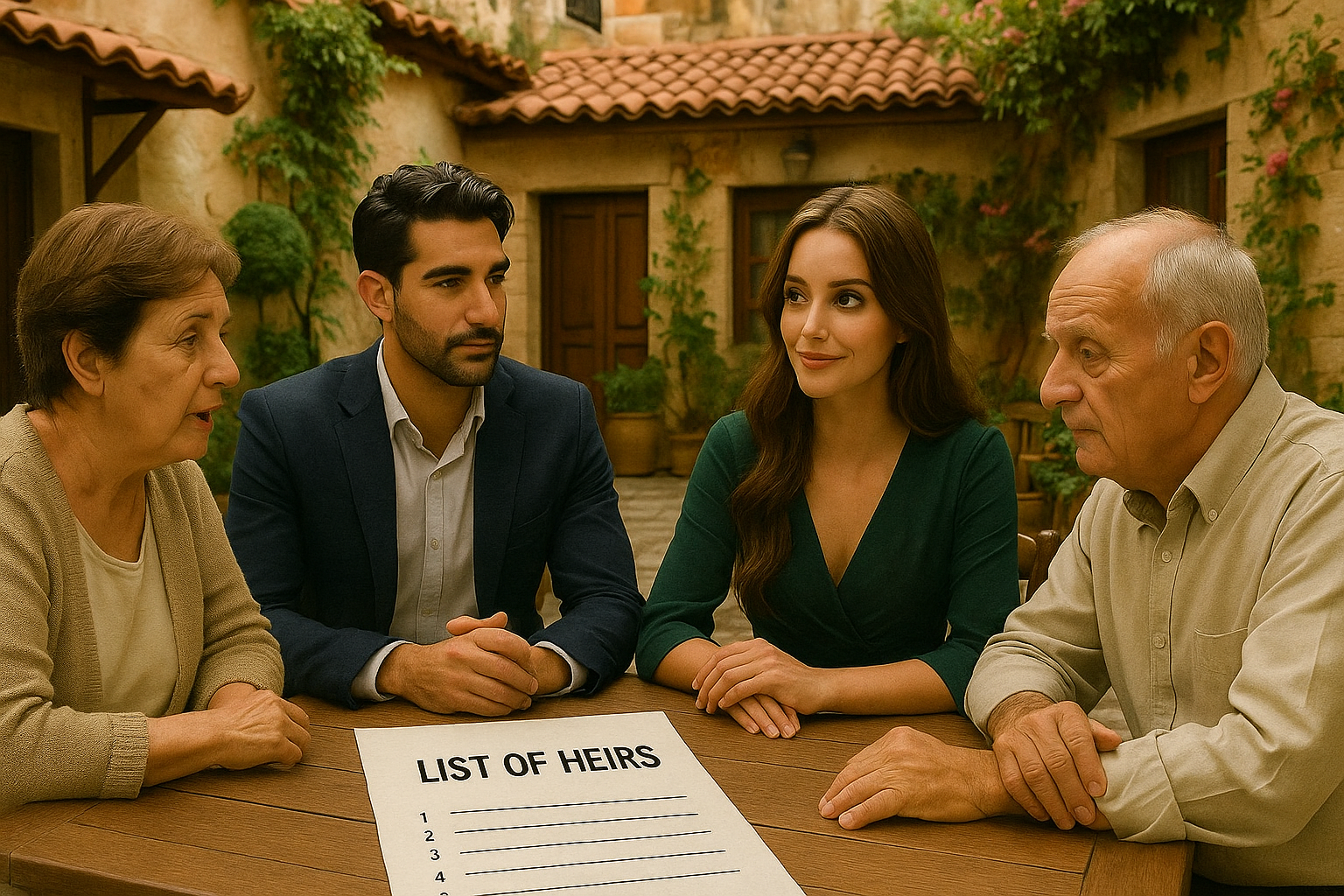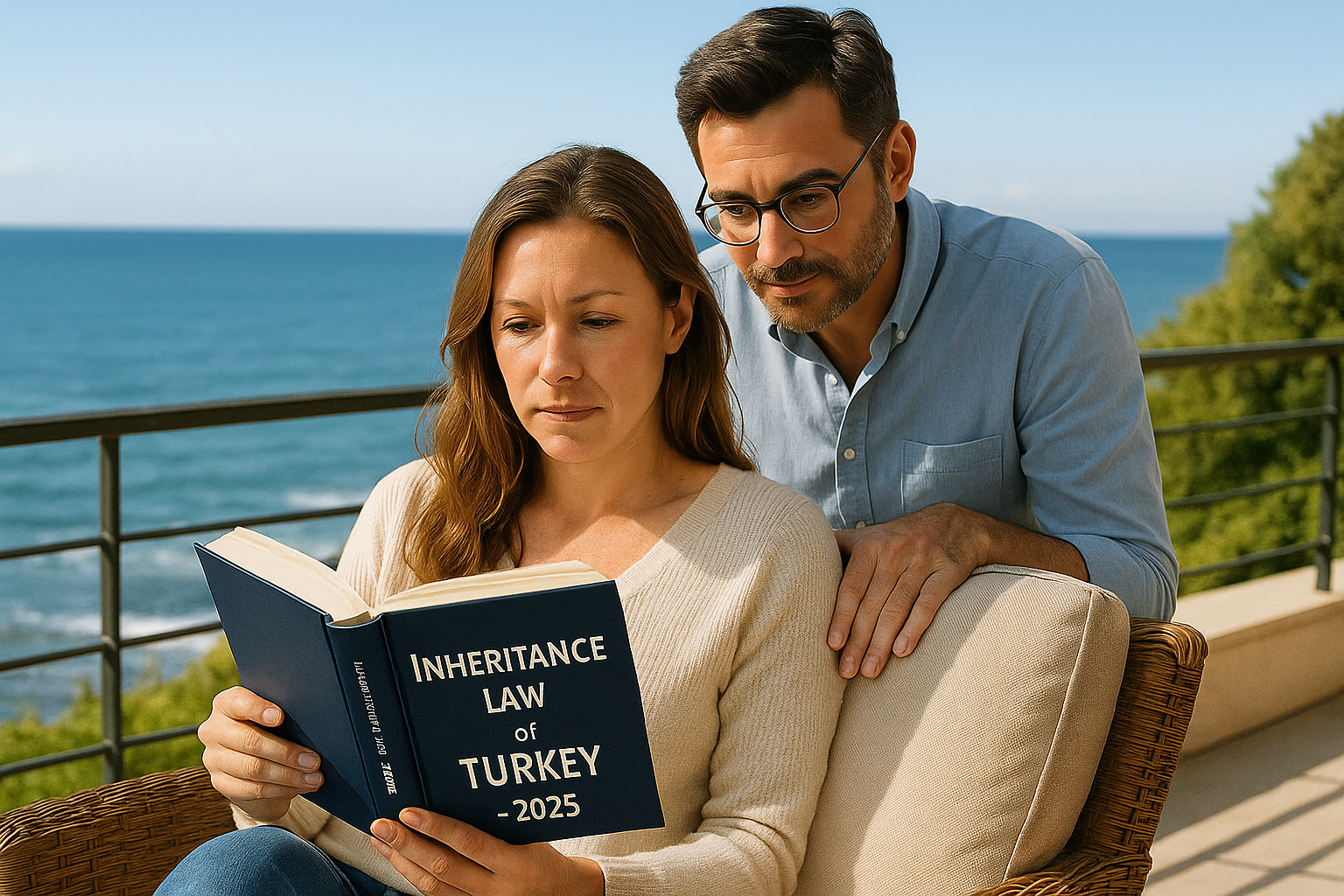Inheritance for Foreigners in Turkey in 2025: Wills, Taxes, and Procedures

Introduction
Turkey is one of the most popular destinations for real estate investment, starting a business, or relocating permanently. However, acquiring property raises an important question: how will it be inherited?
If you’re a foreigner owning an apartment, villa, or business in Turkey, understanding local inheritance laws is crucial. Unlike many countries, Turkey has specific rules, especially when heirs are not Turkish citizens.
✔ How Turkish inheritance law works in 2025.
✔ Who can inherit your property: children, spouse, or third parties.
✔ How to avoid conflicts among heirs.
✔ What taxes you’ll need to pay.
✔ Can someone be disinherited?
If you don’t want your Turkish property to spark legal disputes, read on carefully!
1. Inheritance Law in Turkey: What’s New in 2025?
In 2025, there are no revolutionary changes to Turkish inheritance law, but clarifications have been introduced regarding taxes and procedures for foreigners.
Key Legislation:
- Turkish Civil Code (Türk Medeni Kanunu) — governs inheritance procedures.
- International Private Law (MÖHUK) — determines which laws apply to foreigners.
- Tax Code — sets inheritance tax rates.
Core Principles of Inheritance:
✅ Testamentary Inheritance (allows altering heirs’ shares).
✅ Mandatory Share (children, spouse, and parents cannot be fully disinherited).
2. Who Can Inherit Property in Turkey?

Eligible Heirs Include:
- Children (biological and adopted).
- Spouse.
- Parents.
- Siblings, nieces, nephews.
- Distant relatives (up to the 4th degree of kinship).
- The State (if no heirs exist).
Specifics for Foreigners:
✔ Real estate is inherited exclusively under Turkish law.
Example: A British citizen passes away, leaving an apartment in Antalya and a Turkish bank account.
- The apartment is distributed under Turkish law.
- The bank account follows British inheritance law.
3. Inheritance Without a Will: Who Gets the Property?
If there’s no will, property is divided by law in the following order:
First Priority:
- Children + spouse.
- Children receive equal shares, spouse gets 25% (remainder split among children).
Second Priority (if no children):
- Parents + spouse.
- Spouse receives 50%, remainder goes to parents.
Third Priority (if no children or parents):
- Siblings, nieces, nephews.
If No Heirs Exist:
- Property goes to the state.
4. How to Draft a Will in Turkey?
To prevent disputes, it’s wise to draft a will. In Turkey, this can be done in three ways:
1. Notarized Will (resmi vasiyetname)
✔ Can be written in any language (with translation).
✔ Stored in a registry, impossible to forge.
2. Handwritten Will (el yazılı vasiyetname)
✔ Can be stored at home or with a trusted person.
3. Oral Will (sözlü vasiyetname)
✔ Requires two witnesses and court confirmation.
Advice for Foreigners:
- Draft a bilingual will (Turkish + native language).
- Specify exact shares for heirs.
- Inform family about the document’s existence.
5. Inheritance Taxes in Turkey (2025)

Inheriting property in Turkey requires paying an inheritance tax (veraset ve intikal vergisi).
Tax Rates in 2025:
| Heir Category | Tax Rate |
|---|---|
| Spouse, children, parents | 1–10% |
| Siblings | 10–20% |
| Distant relatives | 20–30% |
| Non-relatives | Up to 40% |
6. Restrictions for Foreigners
Not all foreigners can freely inherit real estate in Turkey. Key restrictions include:
Properties in restricted zones
Permission required for properties in strategic areas.
How to Check?
Before purchasing property, verify with the Cadastre Office (Tapu Kadastro) if there are inheritance restrictions.
7. How to Claim Inheritance? Step-by-Step Guide
Step 1. Obtain a Death Certificate
- Issued by a hospital or Nüfus Müdürlüğü (Civil Registry Office).
Step 2. Open an Inheritance Case in Court
- File a petition with Sulh Hukuk Mahkemesi (Peace Court).
Step 3. Obtain an Inheritance Certificate (veraset ilamı)
- Confirms heirs’ rights.
Step 4. Transfer Property Title (at Tapu Müdürlüğü)
- Pay the title deed fee (tapu harcı).
Step 5. Pay Inheritance Tax
8. How to Avoid Disputes Among Heirs?

Create a gift deed during your lifetime—faster than inheritance.
Store documents securely (preferably with a notary).
9. Frequently Asked Questions (FAQ)
❓ Can children be disinherited?
➡ No, they are entitled to a mandatory share.
❓ Can inheritance be processed remotely?
➡ Yes, via a power of attorney with apostille.
❓ What happens if taxes aren’t paid?
➡ The tax authority imposes fines + penalties.
Conclusion

Turkey’s inheritance law in 2025 remains foreigner-friendly but demands strict adherence to procedures. To protect your property and avoid legal battles:
✅ Verify property status.
✅ Consult a lawyer.





